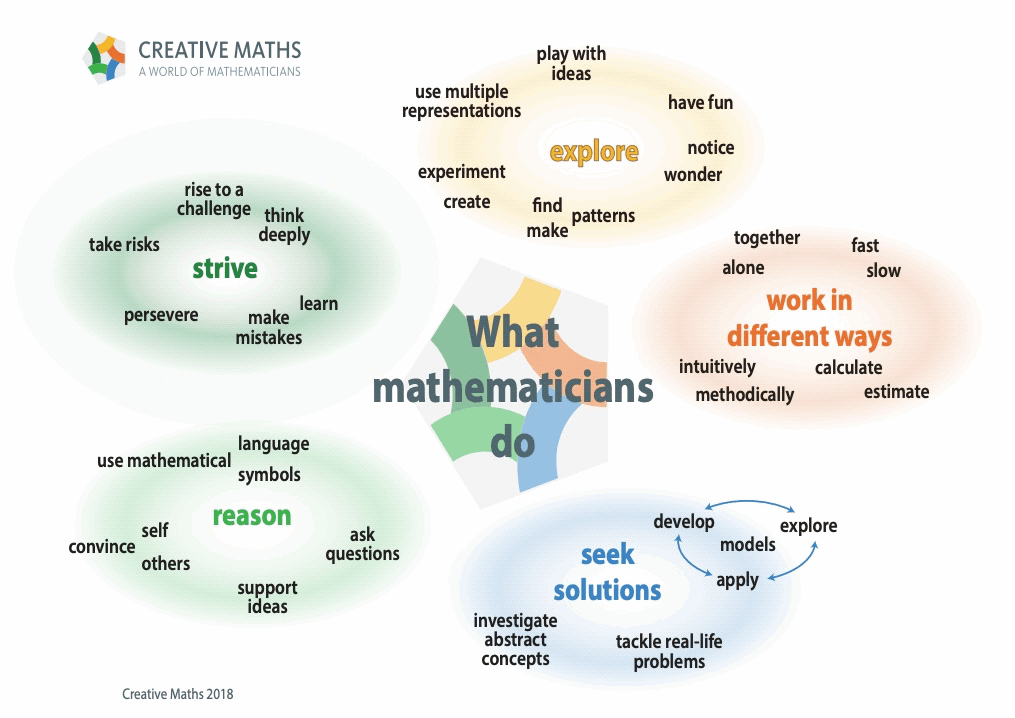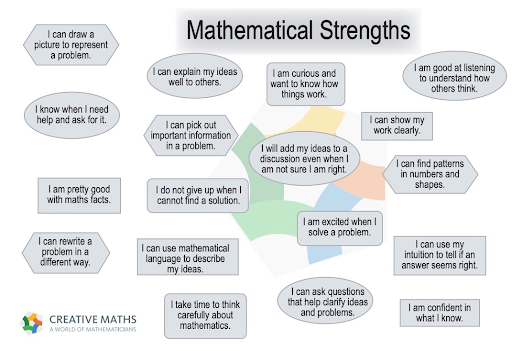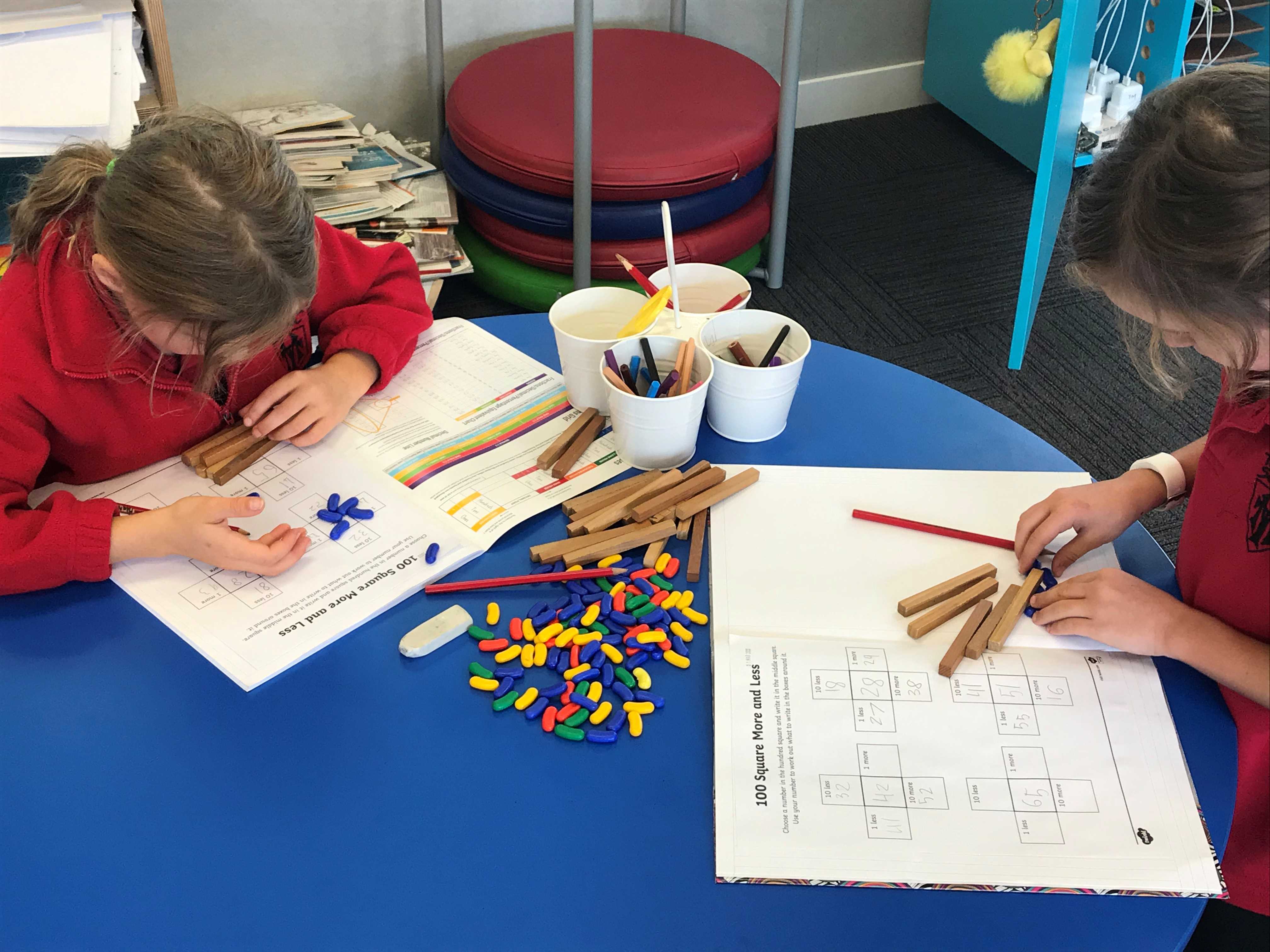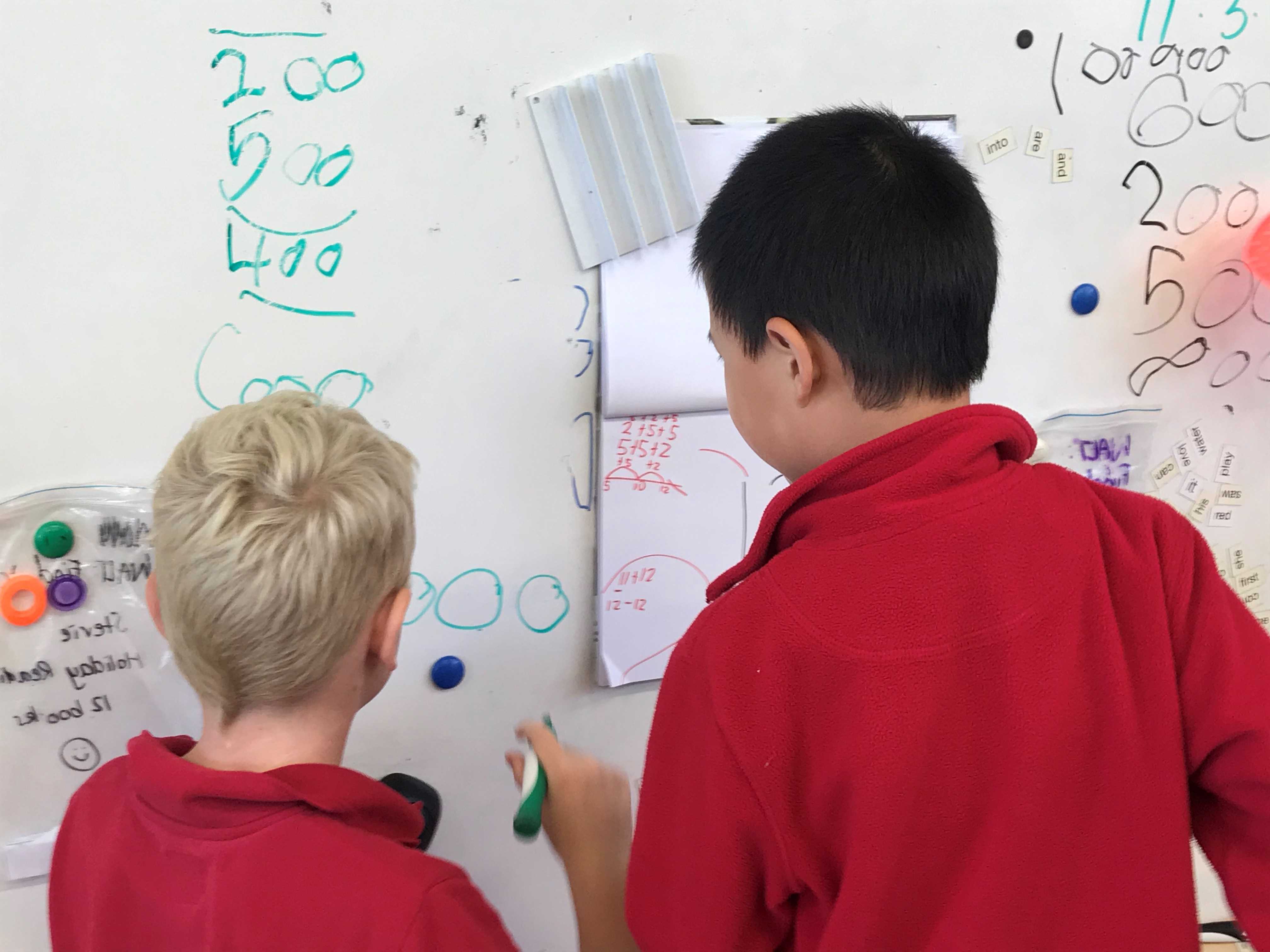

Helping Children with Maths at Home
At Te Mata we are committed to helping each child develop a love of Maths and have the knowledge and skills to successfully use Maths in their everyday lives and future jobs. It is widely reported that the high paying jobs of the future will require Maths knowledge and skills.
Maths is a broad subject involving numbers, patterns and relationships, geometry, measurement, and statistics. Our aim at primary school is to build curiosity and and teach the fundamentals of these different mathematical areas to prepare them for Secondary School and beyond.
Maths Dispositions
We are not born ‘good’ or ‘bad’ at Maths. Maths is learned and it is important for children to understand that being good at Maths is more than getting things right and knowing the answer immediately. It is important to build children’s confidence and ability to strive, explore, work in different ways, reason and seek solutions. At school we design learning that helps strengthen these dispositions and encourage you to praise your child not just for the right answer but for asking questions, making mistakes, take risks and investigating real life problems.
At home you can reinforce these dispositions as you explore maths together.

At school we are aiming to help children understand that learning is hard and can be frustrating. We support the children to identify their strengths and use these to have a positive mindset when facing learning challenges. Below are some phrases that children can say about themselves as learners.

How You Can Help At Home
The basis of Maths is number. Have fun with numbers - as you go for a walk read the numbers on the letterboxes; predict which number comes next; notice and talk about odd and even numbers. A fundamental understanding of how our numbers fit together is essential for addition, subtraction, multiplication and division.
Read about other number systems; Roman numerals for example and challenge your child to create their own number system that mimics our place value system.
Play board and other counting games; encouraging counting on and counting in chunks. My counter is on 6 and I have thrown a 4 so I jump to 10. Dice, cards and dominoes are fantastic tools to use.
Play car cricket; white car is worth 2, blue car 6 and red car means you are out. Who scores the most runs?
Learn to read and tell the time; have a clock in their bedroom; have a timetable showing the weekly events. Create a TV guide for family viewing.
Involve them when shopping at the supermarket or online. Which is the cheapest; how much cheaper. Use real money to purchase and receive change. Play shops at home using empty containers from the house; toothpaste box, empty egg cartoon, empty bottle etc
Involve your child in cooking; this is an ideal time to learn about fractions, temperature, weight and capacity.
Explore patterns in nature, in architecture, in books. Be curious; try repeating them, making your own.
Name shapes, make pictures from shapes. Draw treasure maps then write directions to find the treasure. Play Battleships and learn about coordinates.
Sound basic fact knowledge enables children to problem solve. First we learn our facts to 5; 5 and facts, numbers to make 10 before moving on to hard facts such as numbers that make 20, 100 and so on. Teachers will teach the concepts of addition, subtraction, multiplication and division and use these to solve problems however you can help by practising these regularly.
By the time a child is in Year 6 they should know their multiplication facts instantly and be learning their division facts students. Five minutes a night will make the world of difference. Keep it fun, encourage your children and these will be progress.

There are a number of excellent websites that we have listed below that you might be interested in exploring further:
Fabulous information about progress in Maths and loads of ideas for families.
Fun activities to develop curiosity and reasoning.
Fun games with very few resources to practice basic facts. Games such as Connect 4 and Close to 100.
Games and activities that help parents support their child at home.
A range of number puzzles that strengthen number sense and problem solving.
Rich mathematical learning opportunities for all ages.


Contact
Location
 Admin Login
Admin Login